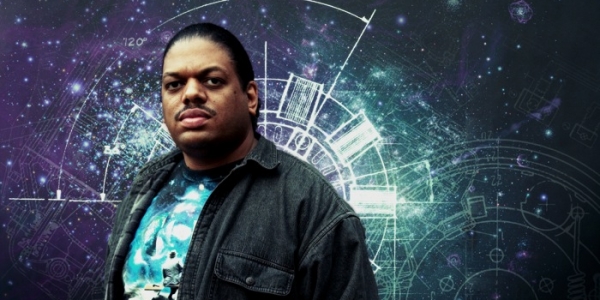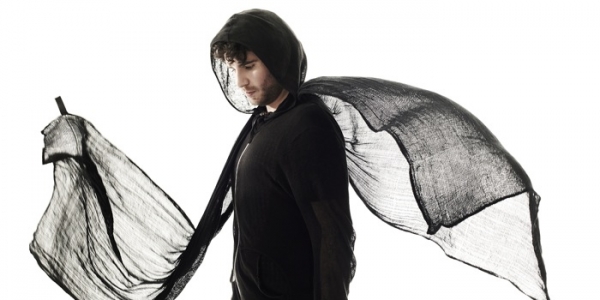“This week I did three parties over one weekend – Watergate in Germany, Circo Loco in Italy and Sub Club’s 25th anniversary party in Glasgow. All very amazing parties, very hard traveling to get to them all, but very worth it! The next generation in is very exciting and it feel just like there is a new wave just like when we started back in the ‘90s.”
There’s this calm sense of getting swept away with deep house. The driving, aggressive force of other house styles or techno is absent and yet there is still this relentless push forward. There is a rarely a crescendo but you are drawn in by the sounds. Early on in the revival, around 2008, Terre Thaemlitz released some deep house under his DJ Sprinkles alias. On Midtown 120 Intro his voiceover aggressively questions the calm exterior of the genre.
“The contexts from which the deep house sound emerged are forgotten: sexual and gender crises, transgendered sex work, black market hormones, drug and alcohol addiction, loneliness, racism, HIV, ACT-UP, Tompkins Square Park, police brutality, queer-bashing, underpayment, unemployment and censorship—all at 120 beats per minute.”
Chandler’s childhood home, New Jersey, was a hot bed of that chaos. His experiences shaped his move towards the genre that he has become known for. Deep House became a perfect counterpoint to the external environment. “I think that different people start for different reasons,” he reflects. “I did it because it was always something I wanted to share, express, grew up with, needed, lived as a culture. I won’t knock anyone for the music they make and for their reasons. Deep house music is a very transparent music, you can tell just how someone feels in the track and you can tell why they made the track, for the love or popularity, the music speaks for itself.”
Chandler also comes from a family of jazz musicians, a genre that has heavily influenced deep house. His father was a respected DJ, and he gave Chandler a strong education in the origins of soul, disco and the New York Underground Sound. At only 13-years-old Chandler began playing records at the Rally Record Club in East Orange, having accompanied his father to gigs for years. Production came soon after and he was signed to Atlantic in 1991.
Asked whether he likes to test new productions on crowds Chandler lets us in on his approach to writing music. “I always do [test crowd reactions] sonically, and arrangements are important. After all, it’s dance music and people have to dance to it. But I am also a mood-driven guy and I trust in what my heart tells me as well. I make my music from what inspires me more than anything.”
Chandler comes from a gospel background and says he prays before making each record, trying to inject his free spirit into the groove. He is known as a technical innovator and someone who is constantly trying out new technologies, hacking machines and creating modifications to hardware. “I feel there are no limits ever. When it comes to the tools you use I live by ‘fuck it, why not’. I personally like to have a studio around me when I play. It’s like remixing live. Since 1988 I’ve always brought extra gear with me, along with using the traditional methods of DJing.”
That technical interest hides a more serious desire. “One day I will go back to college and get my doctorate in physics. I am extremely interested in science. In fact, that’s what I would have been doing if my music career didn’t take over my life (in a good way). It started from my grandfather on my dad’s side of the family. He was a scientist, I used to go to his lab and I was fascinated. It looked like a movie and he got me a little lab coat and goggles, and I have been a mad scientist ever since. I build gear, lasers, holograms, program, etc. In a way my hobby became my job and my job became my hobby.
“I always ‘Chandlerise’ things all the time. The key for me is, I try to improve any machine only if I wanted that machine to A) do something I wish it did, B) had something in it doesn’t, or C) If I can I make the machine work better for me or D) If I can use it in another way that no one’s thought of.”
Chandler is serious about helping the next generation of musicians via his MadTech label. “So far so good. I’m happy you like the direction of the label. The reaction has been wonderful. It’s nice to see the energy just as we had it when I started back in 1990. I started MadTech, to help the next generation have an outlet to express what they feel.”
It’s a similar vision to Chandler’s other label, Madhouse. “Madhouse is very soulful and deep that is my personal voice in a way as a record label. MadTech is more of my vision for the next generation and build a foundation for people that I feel are very talented and just need that extra push to get there.
“James heads up the label and has a great ear for talent. I love the new crew of DJss and producers as family. We all just did a party together at Boiler Room (Thefft, Voyeur, Citizen and Krystal Klear) and I was extremely happy to have so many talented people giving their best. I felt like a proud dad and I knew just what they are all very capable of. I see them all as the next generation taking over dance music one day.”
In the end, Chandler’s philosophy is simple, despite the technology. “I think it’s what any DJ makes of it and It really comes down to the music. What a DJ is playing and does it sound good is more important. I think you should play on what ever expresses what you try to get across with the music you want.”
BY SIMON HAMPSON

